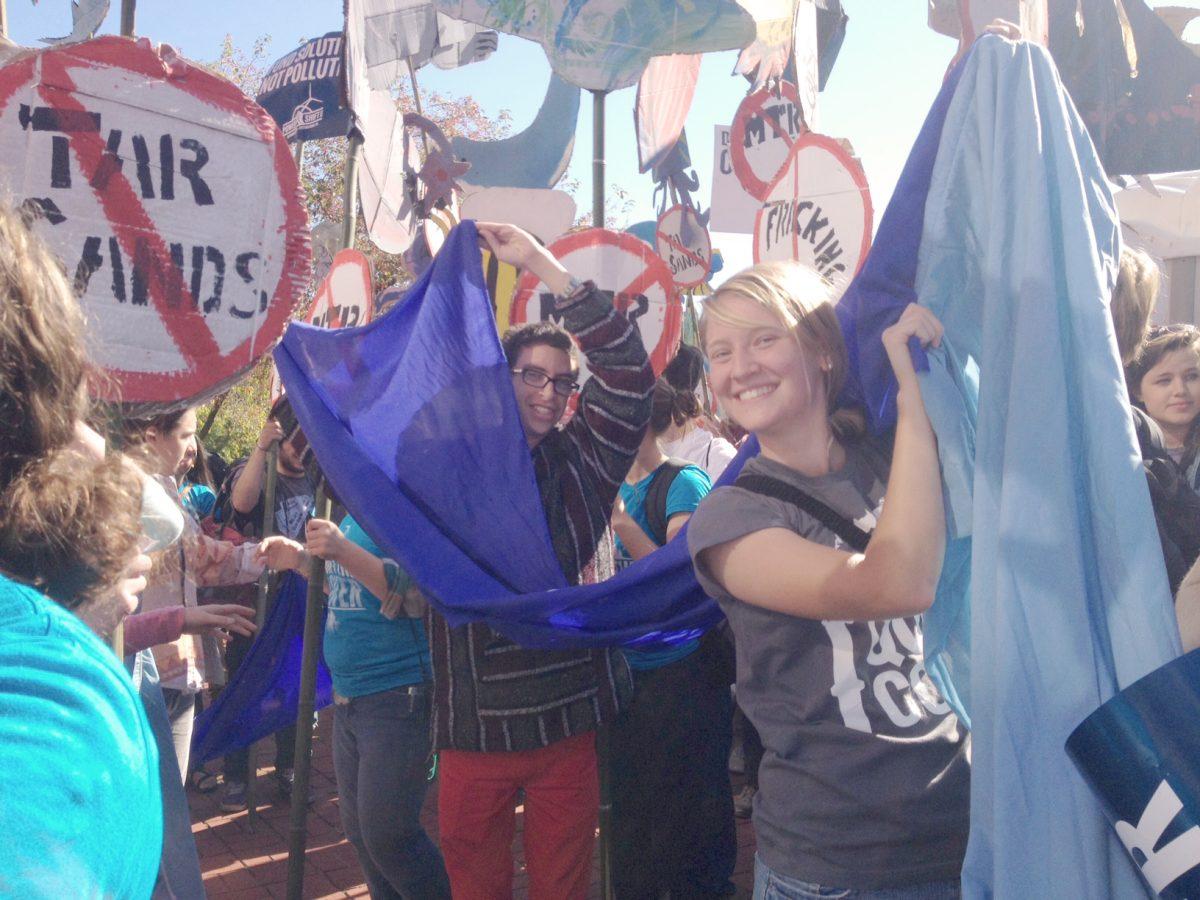Twenty-four N.C. State students protested dirty energy this weekend, along with about 7,000 other college students from across the United States. The protest was only a small part of Power Shift 2013, an environmental conference, which took place in Pittsburgh.
The four-day conference included panel discussions, political organizing training and concerts.
Various speakers presented about the dangers of fracking and environmentally detrimental coal mining practices.
Jason Endries, a junior in meteorology, said he went to Power Shift because he wanted to be around other people that thought the same way he did.
“The weekend was really open-ended,” Endries said. “It was basically a make-your-own weekend. There were breakout sessions and panels that you could go to — three each day — and they were on different topics.”
This is the first year that Power Shift has not taken place in Washington, D.C. Endries said the organizers moved the event to Pittsburgh to highlight fracking practices in Pennsylvania.
Claudio Kriegel, a senior in psychology, said he attended Power Shift so he could be in a place with other active agents in the environmental movement.
“It was a really great opportunity to get into contact with people that … have a lot of information and skills to transfer to people like us who are learning about how we can influence the way we user energy and the way that we structure our institutions,” Kriegel said.
Jason Hull, a senior in agricultural business management, said the protest began with speeches from various activists who attempted to motivate the crowd. The group then marched across one of the major bridges in downtown Pittsburgh, before running into a separate protest.
“One of the cool and interesting things is they had an anti-protest in the water as well as on the bridge,” Hull aid. “It was really interesting to hear their perspective on the environmental movement.”
Hull said this “anti-protest” highlighted the benefits of the coal industry. These anti-protesters said coal was a major part of their livelihoods and the Pittsburgh job economy.
Ryan Kilgore, a sophomore in first year engineering, said he most enjoyed the exposure to the people who live in the communities affected by fracking practices. At one of the panels, Kilgore said a presenter talked about his time living in Houston. Every day, the man commuted work, and he was forced to turn off his air conditioning because the outside pollution made him physically sick.
“He went into the community … and he worked in that community to improve air quality,” Kilgore said. “That was really inspiring for me to hear.”
Endries attended a similar panel called “Real Stories of Coal in Appalachia.”
“It was real people just telling their stories – awful stories about top removal,” Endries said.
Top removal is short for mountaintop removal mining, a form of surface mining that involves the mining of the summit or summit ridge of a mountain. A study from the University of South Carolina, published in 2008, found that MTR has serious environmental impacts. Water resources are filled with dirt and pollutant air becomes severely contaminated by coal dust, according to the study.
Reagan Howard, a junior in chemical engineering, said the group of N.C. State students was feeling inspired after the trip back to North Carolina.
“We’ve been exposed to different ideas regarding different causes,” Howard said. “If we work together we can make a bigger impact at N.C. State and in our communities across the country.”
Endires said N.C. State should get ready for some beneficial changes.
“All of the 24 students that went got really inspired, and we’re coming back with a lot of energy to put some changes into our campus,” Endries said.








